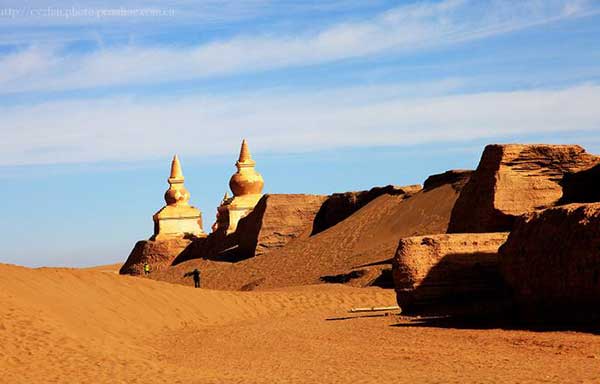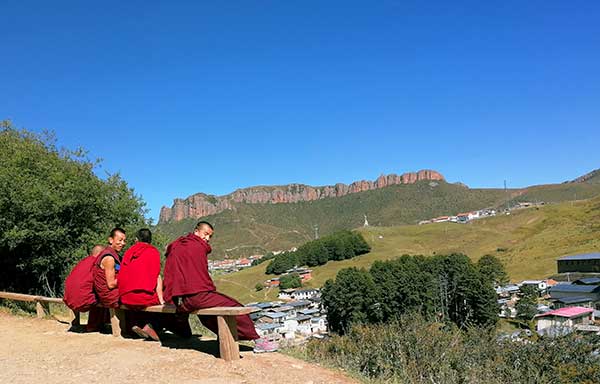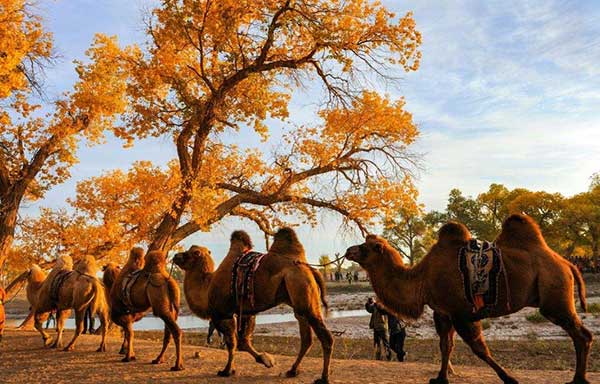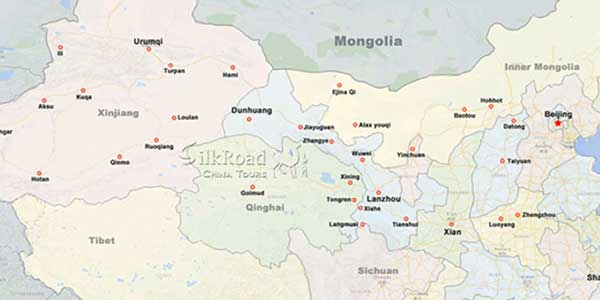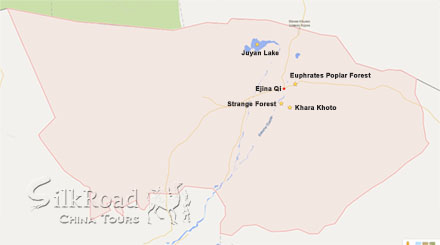 The Juyan Lake (Chinese: 居延海; Mongolian: Gashuun Nuur for western lake, Sogo Nuur for eastern lake) is a former lake in the Gobi desert. It is located in the western part of Inner Mongolia, in Ejin Banner of the Alxa League, near the border with Outer Mongolia. Goshun Nur had an area of 267 km2 (103 sq mi) in 1958, of 213 km2 (82 sq mi) in 1960, and has dried up in 1961. The eastern lake reappeared in 2005. As of August 2012, the area of the lake is 38 km2.
The Juyan Lake (Chinese: 居延海; Mongolian: Gashuun Nuur for western lake, Sogo Nuur for eastern lake) is a former lake in the Gobi desert. It is located in the western part of Inner Mongolia, in Ejin Banner of the Alxa League, near the border with Outer Mongolia. Goshun Nur had an area of 267 km2 (103 sq mi) in 1958, of 213 km2 (82 sq mi) in 1960, and has dried up in 1961. The eastern lake reappeared in 2005. As of August 2012, the area of the lake is 38 km2.
The Juyan Lake basin is a rare wetland located in a desert. It covers an area of about 10,000 square kilometres . The Juyan lake is one of three former terminal lakes located at the outer edges of the Heihe River ('Black River') catchment which formed a large inland delta between the Qilian and the Gobi Altay. The Heihe River is also known as the Ruo Shui (Chinese: 弱水, literally: "weak river"), also Etsin Gol or Ruo He or Ejin River.
The basin's boundary is formed by the Mazong Shan mountains to the west, the Heli Shan and Longshou Shan mountains to the south, the Helan Shan and Lang Shan ranges to the east and the Mongolian Gobi Altay range to the north.
The basin played an important role in ancient times and was historically part of the Gansu Corridor between the 2nd century BC to the 8th century AD.
"This territory, called Juyan by the Han Chinese, was maintained and garrisoned by the empire from the time of Emperor Wu until the last century of Later Han. Militarily, the outpost of the Great Wall was important for two reasons: as a supply point for the garrisons in the northwest and, perhaps more significant, as a means to deny this prosperous region to the northern nomads. Left undefended, Juyan would have provided an ideal route for attack against the Chinese commanderies of the corridor itself.
During Former Han, therefore, the Zhelu Zhang (Fortress to Block the Enemy), had been constructed by the marshes of the Edsin Gol, and it was from this base, for example, that the general Li Ling went forth on his disastrous attack against the Xiongnu in 99 BC.
South of the Juyan salient, the main line of defences followed the Great Wall, which ran in this region from the passes of Yumen Guan and Yang Guan in Dunhuang commandery of the far west along the northern edge of the Gansu corridor past Jiuquan, Zhangye and Wuwei."
Gallery
Attractions in the area
Related Tours
General Information
Alias: Subozhuo'er
Loc: 50 km from EjinaQi
Entrance: 80 RMB
Open Time: 05:00~18:00
Relevant blogs
-
How did the name of Tianshui in Gansu come about?
The name Tianshui is very pleasant to the ear, and it reminds one of that exquisitely beautiful verse, "After getting drunk, one doesn't know if the sky is in
-
The 8th Silk Road Hotel Festival was successfully held i
On December 27th, the "8th Silk Road Hotel Festival" grandly opened at the Yujing International Hotel in Zhangye. This hotel festival gathered industry experts,
-
The Karez Irrigation System in Turpan has been selected
On September 3rd, at the 75th Executive Council Meeting of the International Commission on Irrigation and Drainage held in Sydney, Australia, the 2024 (11th bat
-
What is the connection between "dragons" and "snakes
In traditional Chinese culture, the snake has a dual identity of auspiciousness and danger. Ancient people believed that the snake not only possesses divine cha
-
Endangered Przewalski's Horses Spotted at Dunhuang Yume
<p>In early February, a group of special "visitors"—the Przewalski's horses—appeared at the Dunhuang Yumen Pass scenic area in Gansu Province, a U
-
The Fourth Dunhuang Cultural Tourism Supplier Conference
On the morning of February 18th, the Fourth Dunhuang Cultural Tourism Supplier Conference in Northwest China commenced at the Dunhuang International Convention









